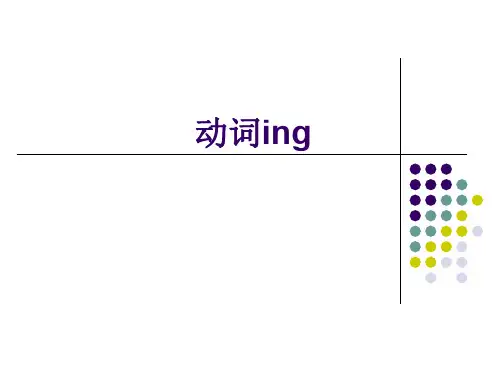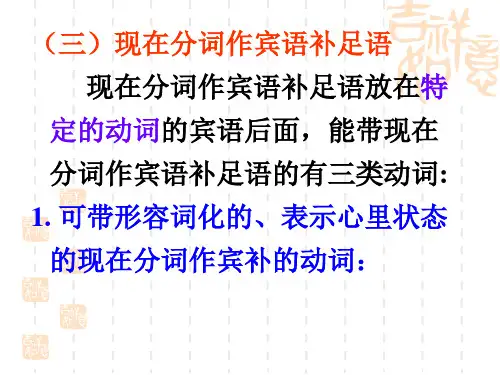(完整版)doing作状语.ppt
- 格式:ppt
- 大小:3.48 MB
- 文档页数:59
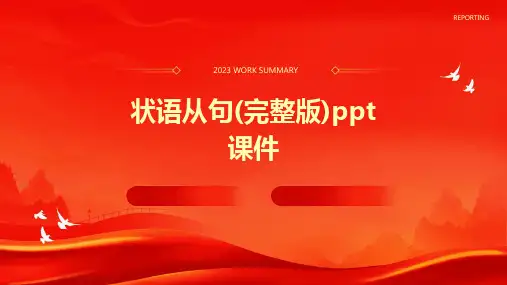
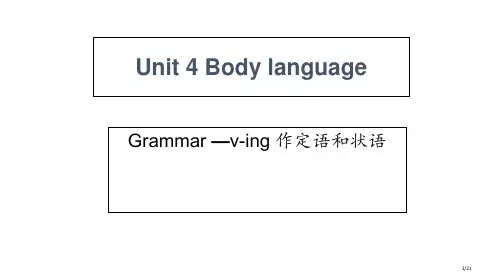



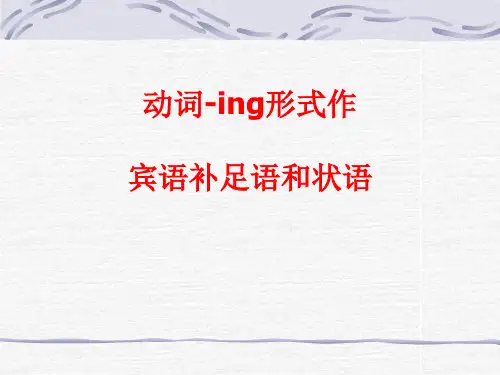
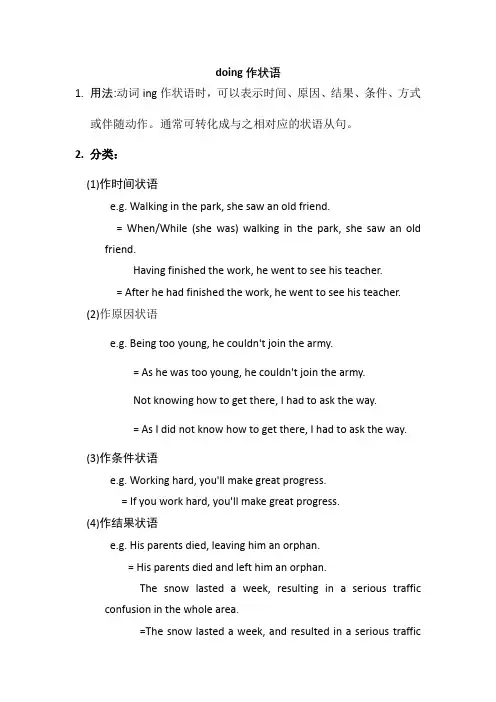
doing作状语1.用法:动词ing作状语时,可以表示时间、原因、结果、条件、方式或伴随动作。
通常可转化成与之相对应的状语从句。
2.分类:(1)作时间状语e.g. Walking in the park, she saw an old friend.= When/While (she was) walking in the park, she saw an old friend.Having finished the work, he went to see his teacher.= After he had finished the work, he went to see his teacher.(2)作原因状语e.g. Being too young, he couldn't join the army.= As he was too young, he couldn't join the army.Not knowing how to get there, I had to ask the way.= As I did not know how to get there, I had to ask the way.(3)作条件状语e.g. Working hard, you'll make great progress.= If you work hard, you'll make great progress.(4)作结果状语e.g. His parents died, leaving him an orphan.= His parents died and left him an orphan.The snow lasted a week, resulting in a serious traffic confusion in the whole area.=The snow lasted a week, and resulted in a serious trafficconfusion in the whole area.注意:动词ing形式与不定式均可作结果状语,区别是:动词ing 形式表示顺其自然、意料之中的结果,而不定式则表示不愿看到的、出人意料的结果。
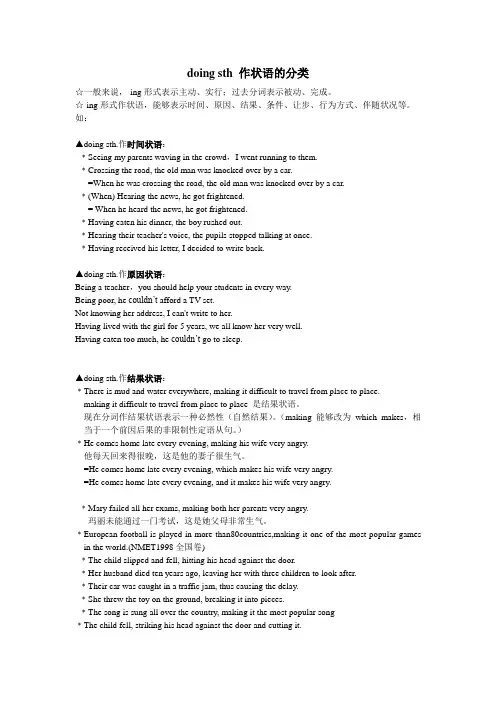
doing sth 作状语的分类☆一般来说,-ing形式表示主动、实行;过去分词表示被动、完成。
☆-ing形式作状语,能够表示时间、原因、结果、条件、让步、行为方式、伴随状况等。
如:▲doing sth.作时间状语:﹡Seeing my parents waving in the crowd,I went running to them.﹡Crossing the road, the old man was knocked over by a car.=When he was crossing the road, the old man was knocked over by a car.﹡(When) Hearing the news, he got frightened.= When he heard the news, he got frightened.﹡Having eaten his dinner, the boy rushed out.﹡Hearing their teacher's voice, the pupils stopped talking at once.﹡Having received his letter, I decided to write back.▲doing sth.作原因状语:Being a teacher,you should help your students in every way.Being poor, he couldn’t afford a TV set.Not knowing her address, I can't write to her.Having lived with the girl for 5 years, we all know her very well.Having eaten too much, he couldn’t go to sleep.▲doing sth.作结果状语:﹡There is mud and water everywhere, making it difficult to travel from place to place.making it difficult to travel from place to place 是结果状语。
